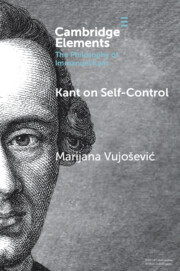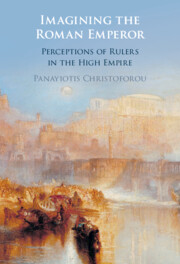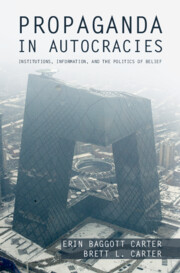101 results

Kant on Self-Control
-
- Published online:
- 28 May 2024
- Print publication:
- 20 June 2024
-
- Element
- Export citation
In the Shadows of Great Men: Retired Leaders and Informal Power Constraints in Autocracies
-
- Journal:
- British Journal of Political Science , First View
- Published online by Cambridge University Press:
- 02 April 2024, pp. 1-27
-
- Article
-
- You have access
- Open access
- HTML
- Export citation
Exploring East Asia's Successful Early-Stage Covid-19 Response: An Empirical Investigation
-
- Journal:
- Journal of East Asian Studies / Volume 24 / Issue 1 / March 2024
- Published online by Cambridge University Press:
- 19 February 2024, pp. 1-23
- Print publication:
- March 2024
-
- Article
-
- You have access
- Open access
- HTML
- Export citation
DEMOCRATIC STATE, AUTOCRATIC METHOD: THE REFORM OF HUMAN RIGHTS LAW IN THE UNITED KINGDOM
-
- Journal:
- International & Comparative Law Quarterly / Volume 73 / Issue 1 / January 2024
- Published online by Cambridge University Press:
- 21 December 2023, pp. 1-27
- Print publication:
- January 2024
-
- Article
- Export citation
7 - Threatening Citizens with Repression
-
- Book:
- Propaganda in Autocracies
- Published online:
- 18 July 2023
- Print publication:
- 14 September 2023, pp 289-334
-
- Chapter
- Export citation
8 - The Propagandist’s Dilemma
-
- Book:
- Propaganda in Autocracies
- Published online:
- 18 July 2023
- Print publication:
- 14 September 2023, pp 337-370
-
- Chapter
- Export citation
2 - A Theory of Autocratic Propaganda
-
- Book:
- Propaganda in Autocracies
- Published online:
- 18 July 2023
- Print publication:
- 14 September 2023, pp 39-81
-
- Chapter
- Export citation
4 - The Politics of Pro-regime Propaganda
-
- Book:
- Propaganda in Autocracies
- Published online:
- 18 July 2023
- Print publication:
- 14 September 2023, pp 125-172
-
- Chapter
- Export citation
11 - Conclusion
-
- Book:
- Propaganda in Autocracies
- Published online:
- 18 July 2023
- Print publication:
- 14 September 2023, pp 443-466
-
- Chapter
- Export citation
10 - Propaganda and Protest
-
- Book:
- Propaganda in Autocracies
- Published online:
- 18 July 2023
- Print publication:
- 14 September 2023, pp 413-442
-
- Chapter
- Export citation
1 - Persuasion and Domination
-
- Book:
- Propaganda in Autocracies
- Published online:
- 18 July 2023
- Print publication:
- 14 September 2023, pp 3-38
-
- Chapter
- Export citation
6 - Narrating the World
-
- Book:
- Propaganda in Autocracies
- Published online:
- 18 July 2023
- Print publication:
- 14 September 2023, pp 228-288
-
- Chapter
- Export citation
9 - Memory and Forgetting
-
- Book:
- Propaganda in Autocracies
- Published online:
- 18 July 2023
- Print publication:
- 14 September 2023, pp 371-410
-
- Chapter
- Export citation
3 - A Global Dataset of Autocratic Propaganda
-
- Book:
- Propaganda in Autocracies
- Published online:
- 18 July 2023
- Print publication:
- 14 September 2023, pp 82-122
-
- Chapter
- Export citation
5 - Narrating the Domestic
-
- Book:
- Propaganda in Autocracies
- Published online:
- 18 July 2023
- Print publication:
- 14 September 2023, pp 173-227
-
- Chapter
- Export citation
2 - Song in a Multipolar World
-
- Book:
- Middle Imperial China, 900–1350
- Published online:
- 20 July 2023
- Print publication:
- 03 August 2023, pp 38-68
-
- Chapter
- Export citation

Imagining the Roman Emperor
- Perceptions of Rulers in the High Empire
-
- Published online:
- 27 July 2023
- Print publication:
- 10 August 2023
3 - Domestic Political Institutions and War
- from Part II - Domestic Politics and War
-
-
- Book:
- Understanding War and Peace
- Published online:
- 06 July 2023
- Print publication:
- 20 July 2023, pp 85-113
-
- Chapter
- Export citation
1 - Islam and Political Underdevelopment
- from Part I - The Modern Middle East’s Authoritarian Face
-
- Book:
- Freedoms Delayed
- Published online:
- 20 July 2023
- Print publication:
- 20 July 2023, pp 3-32
-
- Chapter
- Export citation

Propaganda in Autocracies
- Institutions, Information, and the Politics of Belief
-
- Published online:
- 18 July 2023
- Print publication:
- 14 September 2023



